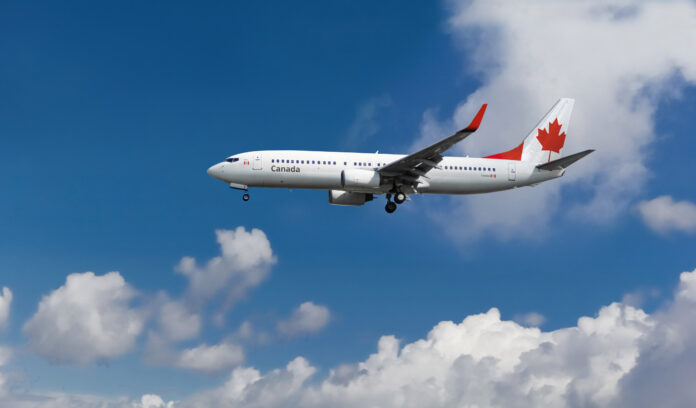
Canada immigration news: An Electronic Travel Authorization (eTA) is no longer needed for permanent residents of the United States to board flights to Canada, starting immediately.
“These individuals must carry official proof of their status in the U.S. (or an equivalent status document) and a valid passport from their country of nationality (or an equivalent travel document) for all methods of travel to Canada,” notes Immigration, Refugees and Citizenship Canada on its website.
Read More Canada Immigration News
Spouse And Partner Immigration 2021: Indian Citizens Dominate Permanent Residence Figures
Canada Already On Track For Record-Breaking 2022 Immigration
Work In Canada: Overcoming Criminal Inadmissibility
But the eTAs which were until now required for those permanent residents of the United States to fly to – or even just through – Canada is no longer required.
Travellers Who Need eTAs Must Apply For Them Online
Countries whose citizens are required under the Immigration and Refugee Protection Act (IRPA) and Refugee Protection Regulations (IRPR) to get eTAs must do so through Canada’s electronic system and pay for them before coming here.
Those countries are:
- Andorra;
- Australia;
- Austria;
- Bahamas
- Barbados;
- Belgium;
- British citizens;
- British nationals (overseas);
- British overseas citizens (re-admissible to the United Kingdom);
- British overseas territory citizens with citizenship through birth, descent, naturalization or registration in one of the British overseas territories of:
- Anguilla;
- Bermuda;
- British Virgin Islands;
- Cayman Islands;
- Falkland Islands (Malvinas);
- Gibraltar;
- Montserrat;
- Pitcairn Island;
- Saint Helena;
- Turks and Caicos Islands;
- British subjects with a right of abode in the United Kingdom;
- Brunei Darussalam;
- Bulgaria;
- Chile;
- Croatia;
- Cyprus;
- Czech Republic;
- Denmark;
- Estonia;
- Finland;
- France;
- Germany;
- Greece;
- Hong Kong Special Administrative Region of the People’s Republic of China;
- Hungary;
- Iceland;
- Ireland;
- Israel;
- Italy;
- Japan;
- Republic of Korea;
- Latvia;
- Liechtenstein;
- Lithuania;
- Luxembourg;
- Malta;
- Mexico;
- Monaco;
- Netherlands;
- New Zealand;
- Norway;
- Papua New Guinea;
- Poland;
- Portugal;
- Romania;
- Samoa;
- San Marino;
- Singapore;
- Slovakia;
- Slovenia;
- Solomon Islands;
- Spain;
- Sweden;
- Switzerland;
- Taiwan;
- United Arab Emirates;
- the Vatican.
Foreign nationals travelling to or transiting through Canada by land, sea or rail do not need to get eTAs, which are valid for five years or until the applicant’s passport expires, whichever occurs sooner.
“Applications for … eTAs, including eTA expansion, are, for the most part, online, automated applications. Applications that are not approved automatically by the Global Case Management System (GCMS) require manual review at the Operations Support Centre (OSC). Applications may trigger manual review at different stages for either or both of the following reasons: identity reconciliation, or; derogatory information,” notes the IRCC.
Watch Video
COVID-19 Restrictions Ease, Cross-Border Travel Rises
Under the IRPA, Canadian immigration officers can undertake Canadian criminal record checks and request documents from the applicant to determine admissibility.
As the Covid-19 pandemic restrictions ease off and international travel takes off again, the Canadian border is becoming increasingly busy.
“Last week, our border saw over one million travellers, a new high since the start of #COVID1,” tweeted the Canada Border Services Agency last Friday. “Have your passport, #ArriveCAN receipt and proof of vaccination ready when crossing the border.”
Earlier this week, Ottawa eased and simplified border measures for some groups of travellers, including children aged five to 11 travelling with vaccinated parents.
“Unvaccinated or partially-vaccinated children aged five to 11 who are accompanied by a fully-vaccinated parent, step-parent, guardian or tutor will no longer be required to complete a pre-entry COVID-19 test for entry to Canada,” notes the Public Health Agency of Canada (PHAC) on its website.
“Pre-entry tests will still be required for partially-vaccinated or unvaccinated travellers 12 and older who are currently eligible to travel to Canada. Children under five years of age are not required to provide a COVID-19 test result.”
Fully vaccinated travellers also no longer have to provide a quarantine plan upon entry.
“This requirement will also be removed for children aged five to 11 who are accompanied by a fully-vaccinated parent, step-parent, guardian, or tutor and travellers with a medical contraindication to a COVID-19 vaccine,” notes the PHAC website.

